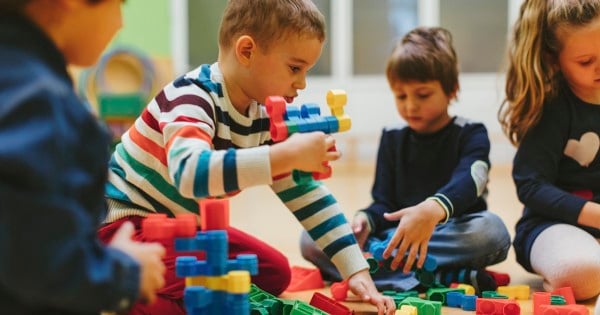
Childcare is so often seen as a necessary evil for working parents, but I’ve come to learn that it is so much more than that – it’s a place of remarkable learning.
When my son was in day care I can admit that his learning was probably the last thing on my mind behind the upfront cost of child care, juggling work and staying on top of all my responsibilities at home. Even just getting the front lawn mown was, still is, at times a bit beyond me.
Thankfully, the wonderful educators and teachers at my local day care were focused on providing both of my children with quality early learning experiences. Not formal sit down school, but play based learning following their interests and tailored to their stage of development.
READ MORE. Budget Explainer: What’s on the table for childcare?
I’m so confident that this is going to make such a difference when my eldest starts school– he will be settled and ready to learn.
Alys and her son William, who starts school next year after five years of childcare. Image supplied.
This is a familiar situation for single mum Simone and her two boys – Kayden, four and a half, and Tyler, eight from Eagleby in Queensland.
Kayden started preschool in Eagleby South in February this year and attends for two days one week and three days the next.
Simone has seen the positive effect of early learning in boosting Kayden’s development:
“Kayden is very sporty and loves to run around outdoors. He got a PV-50 motorbike for Christmas and recently started doing Karate and other Martial Arts. But I couldn’t get him to sit down and look at a picture book. He would just flip through a few pages and running off to find something else to do.
“Since starting [kindergarten] in February Kayden’s concentration and attention span have increased phenomenally. Now when it’s time to read at night, he'll go and find something he wants to read, and ask us to read it. He sometimes even has a book under his pillow.
“He’s much more interested in wanting to learn his numbers and ABC, he looks for the letters in his name anywhere – in books and on TV. Right now he’s fixated on the number 4, his age.”
Most parents recognise the social benefits that access to early education provides children, but as Kayden’s experience suggests it is also critical time for early literacy development.
